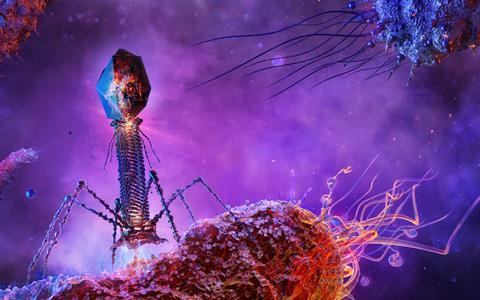The Viruses of Microbes (VoM) is a biannual meeting hosted by the International Society for Viruses of Microorganisms (ISVM) and is dedicated to the advancement of the fields of microbial viruses, including bacteriophages, archaeal viruses, and viruses of microbial eukaryotes. This year, the meeting (VoM2024) was held in Cairn, Australia (for the first time outside of Europe) with a theme of ‘Expanding our viral frontiers’.
The meeting brought together renowned researchers from across the world. Most of the presentations were focused on understanding the intricacies of phage therapy in improving human health and advocating for it as an alternative, adjuvant therapy to antibiotics. This directly contributes to AMI’s strategic objective of Good Health and Well-being (UN SDG3). Several talks explored the veterinary application of phage in agriculture (crops, honey bees) and aquaculture (shrimp), advocating for antibiotic-free strategies to improve crop and animal production. These talks were closely aligned with AMI’s strategic goal of achieving Food Security (UN SDG2) using improved microbiological techniques.
As an early career post-doctoral researcher working on viable strategies for applying phage in aquaculture, presentations and panel discussions on using bacteriophage as therapeutics were of great importance. My primary research focuses on understanding bacteriophage co-evolution and exploring its prophylactic and therapeutic applications in humans, plants, and animals. As such, hearing about research detailing the co-evolution of phage and bacteria was of immense importance in broadening my knowledge. My current project focuses on developing alternative strategies to control aquaculture pathogens like Vibrio, Aeromonas, and other opportunistic pathogens.

Networking
Meeting other individuals who share my passion for advancing our understanding of the viruses of microbes was a significant aspect of the VoM2024 meeting. It provided a platform for collaboration, knowledge sharing, and a deeper understanding of the field. The opportunity to meet and interact with prominent scientists like Jeremy Barr, Rob Edwards, Vivek Mutalik, and others in person was exciting and deeply inspirational. The presentations from PhD students and early career researchers were thought-provoking and further fueled my motivation.
My poster presentation allowed me to meet and network with world-renowned phage researchers. I believe the informal chats over coffee with accomplished team leaders will soon result in meaningful collaborations and lab visits, which will further allow me to achieve my professional goals and expand my skills. The participation has boosted my confidence and motivation towards the research that I am doing, and I’d like to thank AMI once again for its support.








No comments yet